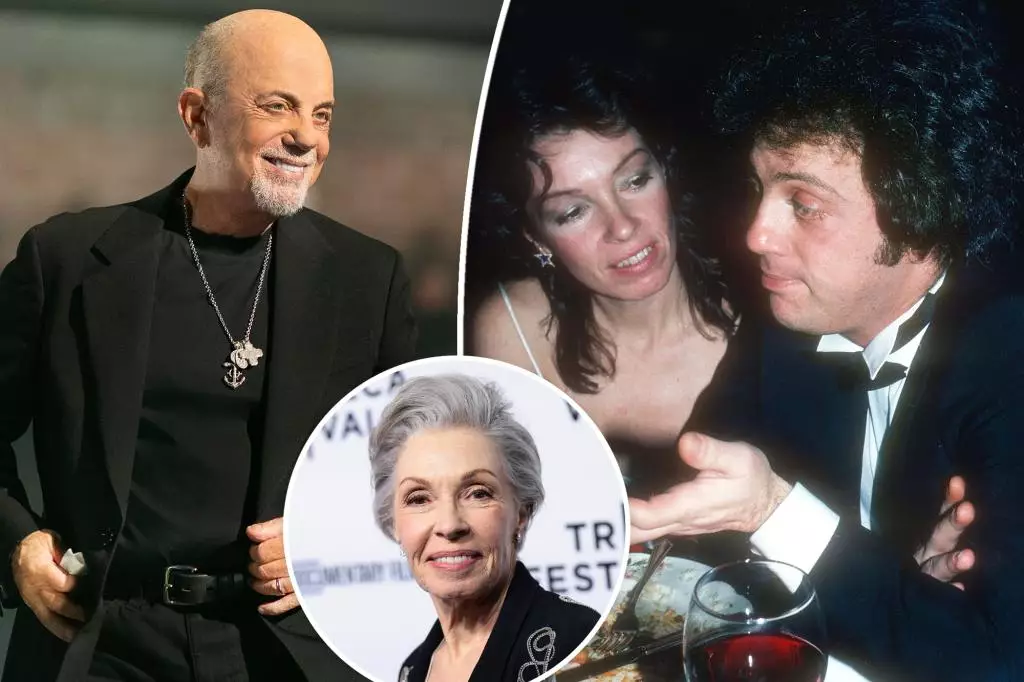Billy Joel, often dubbed the “Piano Man,” is a name that resonates with countless fans around the world. His music, characterized by poignant lyrics and unforgettable melodies, transcends generations. Yet, beneath the layers of his iconic fame lies a complex personal life that has seen its share of triumphs and turmoil. The recent comments from his first wife, Elizabeth Weber, at the Tribeca Festival premiere of the documentary “Billy Joel: And So It Goes,” shed light on the intricacies of their relationship—one that has navigated through fleeting love, difficult separations, and the evolving dynamics of former partners.
Weber candidly shared her perspective on their current relationship, which she described as “friendly but not close.” This sentiment underscores a reality familiar to many who have experienced divorce: that past connections, while meaningful, do not necessarily dictate ongoing intimacy. Her poignant remark, “We got divorced for a reason,” encapsulates the essence of many failed relationships—the acknowledgment that love can often transform into something unrecognizable. The candidness with which Weber addressed their relationship serves as a reminder that closure can be a nuanced journey, not always rooted in animosity or bitterness.
A Journey Through Struggles and Fame
Billy Joel’s life is an interesting interplay of personal struggles and professional accolades. The recent revelation of his battle with normal pressure hydrocephalus, a rare brain disorder, adds another layer to his already intricate narrative. The absence of Joel at the documentary premiere, amidst his health issues, speaks volumes about the unpredictability of life—even for someone who has charmed audiences for decades.
Joel and Weber’s history runs deep, with their story entwined in moments of both joy and despair. Their relationship originated in an unconventional setting, where Joel was living with Weber’s then-husband, bandmate Jon Small. This setup laid the groundwork for a romance that was both passionate and fraught with complications. Their love affair, born in a time of creative prosperity for Joel, was marked by turmoil, especially when guilt over the affair led to suicidal thoughts—a stark contrast to the glamor typically associated with rock stardom.
The Gift of Musical Expression
One of the most beautiful reflections of Joel’s love for Weber can be found in his classic ballad, “Just the Way You Are.” Written as a romantic tribute, the song captures the essence of admiration and love that often accompanies relationships, even those that are now in the rearview mirror. Weber’s acknowledgement of the song as a birthday gift illustrates a tender moment that remains part of their shared legacy.
However, it’s the subsequent treatment of this song in Joel’s performances that sparks a broader conversation about how artists navigate their past relationships in the public eye. With his drummer, Liberty DeVitto, playfully altering the lyrics post-divorce to reflect the financial fallout, Joel demonstrates the dichotomy between artistic expression and personal pain. Such instances can serve to humanize artists, showcasing the emotional risks that accompany creative endeavors.
Resilience Amidst Scrutiny
Weber’s remarks regarding the public perception of her role in Joel’s life reveal an essential truth: the music industry, particularly rock and roll, can harbor a culture that is often unkind to women. Her resilience in facing negative media narratives speaks volumes about her character and personal strength. “I have my life, I do what I do, and I can’t really be concerned about anything else,” she stated, embodying not just the spirit of a survivor but also the essence of someone who has forged her own path away from the shadow of fame.
Though she remains outside the limelight, Weber’s ability to articulate her experiences highlights the complexities surrounding identity and personal separation in the wake of a highly publicized life. In an industry that often overlooks the narratives of women, her voice represents a necessary alternative, emphasizing empowerment, agency, and self-acceptance.
The lives of Billy Joel and Elizabeth Weber are multi-dimensional, filled with high notes and low crescendos. Their journey, while marked by personal and professional pivots, reflects the broader human experience of love, loss, and evolution. Why their story resonates is because it reminds us that behind every public figure exists a tapestry of relationships that are as intricate and nuanced as the melodies they create.

